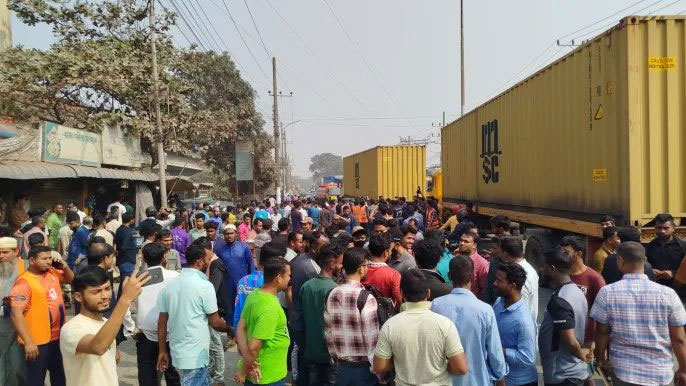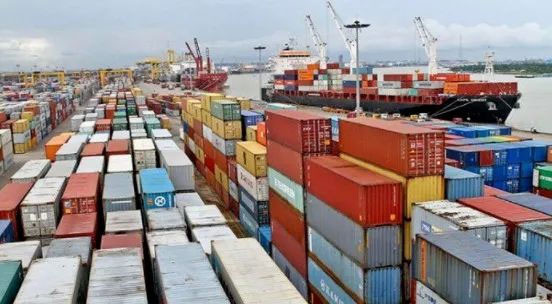

The truckers' association called a strike, disrupting operations in Chittagong
Recently, a series of strikes in Chittagong, Bangladesh, seriously disrupted the port's container transport business. The series of strikes, which began on February 4 by the Teamsters' Association and later spread to tow truck drivers, posed a major challenge to port operations.
After a nearly 34-hour stoppage, container traffic resumed early on Feb. 6. However, the recovery of business processes was not smooth. That morning, tow truck drivers also launched a strike, demanding the closure of the District park. According to the protesting drivers and workers, they called the strike because cases related to the DC Park clash were being filed and they refused to drive their vehicles for fear of arrest.
The strike caused severe traffic congestion on the Patenga-Agrabad road and again disrupted loading and unloading operations at Chittagong port. The strike continued into the afternoon, during which the mover drivers said they would continue the strike until their demands for the closure of DC Park were met.
Chattogram Power Union president Selim Khan confirmed that the union had been assured by the authorities at a meeting the night before that DC Park would be closed from the 6th. However, when the workers found that the park was still open, they went on strike again. The strike lasted until around 9 p.m. and was temporarily called off after talks with the deputy commissioner.
However, the strike did not end there. As a result of the Sitakunda police case, truck drivers resumed their strike, leading to continued chaos. Many drivers are demanding that their cases related to the DC Park clash be dropped or they will not return to work. In addition, some drivers also expressed frustration with the lack of leadership during the strike, arguing that union leaders failed to communicate their message clearly, leading to confusion and the prolongation of the strike.
As an important port in Bangladesh, the stability and efficiency of Chittagong's operations are of great significance to the country's economic development. The government and relevant departments need to take effective measures to strengthen port management and coordination to ensure smooth and efficient port operations. At the same time, trade unions and workers also need to express their demands through legal channels, safeguard their own rights and interests, and avoid taking drastic actions to affect port operations and social order.

After a nearly 34-hour stoppage, container traffic resumed early on Feb. 6. However, the recovery of business processes was not smooth. That morning, tow truck drivers also launched a strike, demanding the closure of the District park. According to the protesting drivers and workers, they called the strike because cases related to the DC Park clash were being filed and they refused to drive their vehicles for fear of arrest.
The strike caused severe traffic congestion on the Patenga-Agrabad road and again disrupted loading and unloading operations at Chittagong port. The strike continued into the afternoon, during which the mover drivers said they would continue the strike until their demands for the closure of DC Park were met.
Chattogram Power Union president Selim Khan confirmed that the union had been assured by the authorities at a meeting the night before that DC Park would be closed from the 6th. However, when the workers found that the park was still open, they went on strike again. The strike lasted until around 9 p.m. and was temporarily called off after talks with the deputy commissioner.
However, the strike did not end there. As a result of the Sitakunda police case, truck drivers resumed their strike, leading to continued chaos. Many drivers are demanding that their cases related to the DC Park clash be dropped or they will not return to work. In addition, some drivers also expressed frustration with the lack of leadership during the strike, arguing that union leaders failed to communicate their message clearly, leading to confusion and the prolongation of the strike.

As an important port in Bangladesh, the stability and efficiency of Chittagong's operations are of great significance to the country's economic development. The government and relevant departments need to take effective measures to strengthen port management and coordination to ensure smooth and efficient port operations. At the same time, trade unions and workers also need to express their demands through legal channels, safeguard their own rights and interests, and avoid taking drastic actions to affect port operations and social order.





